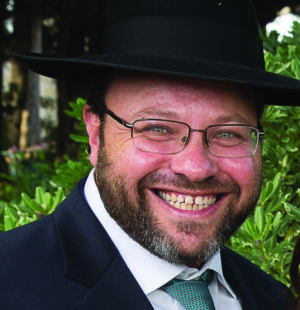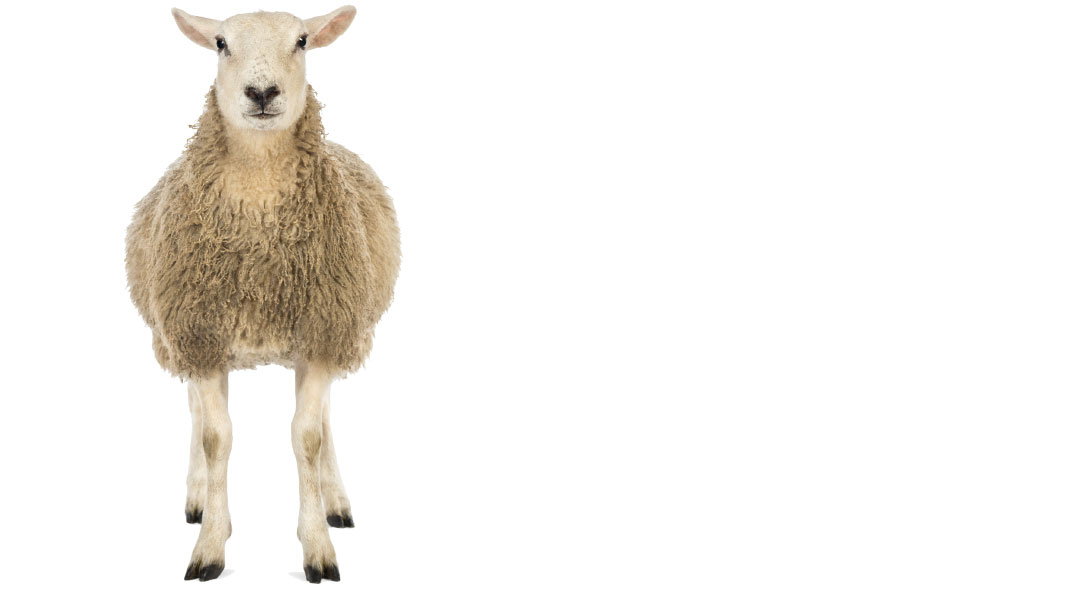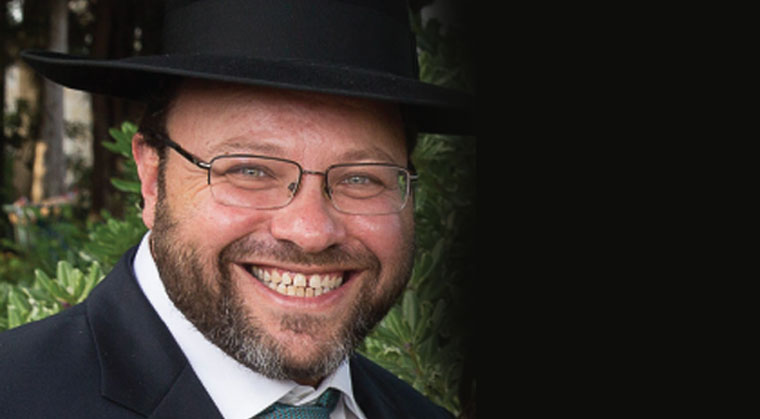Answering the Shepherd’s Call

We need that shepherd’s rattle, that only Ro’einu can sound, to direct us all home

"Your mission, should you choose to accept it…”
And thus began my newest cool foray as a tour guide in Israel. So there I was in the heart of the Shomron, with my newest dear friend, David, at his farm. We were discussing the possibilities of expanding his educational activities — working with teens at risk, school programs, and even some army groups — and opening them up to the larger tourist market.
As we walked around and he showed me his “pet” camel and donkey, as well as his modern-day columbarium (a place where he raises doves), I became more and more enthralled by the potential of a great farming experience in the wonderful countryside of Eretz Yisrael. He showed me the flour mill around the corner, the modern oil press, and the dairy farm up the hill. He explained to me how he generally shows people the process of making flour, pressing olives for fresh oil, and then baking the pitas. To top it all off, he has a chicken coop where he sends the kids to get fresh eggs, which he makes right there on the spot for them.
And then came the mission.
We entered the barn, and he stood poised in front of a flock of sheep corralled inside.
“Your job now is to take this flock of sheep right across the yard, 20 feet or so away, and let them graze for about five minutes or so, and then bring them back here into the corral.”
Seems simple enough, right? I mean, I see six-year-old Arab children all over the place doing this kind of stuff. And I’m a rabbi; after all, we’re kind of like shepherds, right…?
Wrong.
He opened up the gate, and faster than you can say “Little Bo Peep,” they were off. No matter what I tried to do, I couldn’t get them to go where the grass was. They were running all over the place, except to the one lawn I was supposed to take them to. I tried to perhaps find the leader and schlep him over there.
But there was no leader. Each of them was just bolting away. I tried calling to them, singing to them. “Rabbi had a little lamb, little lamb, little lamb, whose fleece was white as snow….”
No go. I even started to threaten them, repeatedly using words like “shawarma,” “pita,” and “chummus.” Which one of you wants to be supper?
Nothing doing.
I spoke to them about the significance of the Korban Pesach, in which they could have a starring role. Much like my congregants, they weren’t interested in sermons. It was party time on the farm. Finally, after coaxing, cajoling, and schlepping, I got most of them to the entrance of the corral. But as soon as I opened the gate to put them in… they bolted once again. Sigh…
I gave up. If they want to run around like cattle, who am I to stop their fun?
Dovid’l, my good friend, who I am sure will have a very successful career in this experience-of-a-lifetime venture, picked up a pail, threw some rocks in it, and started rattling it. And what do you know? All of a sudden, like nuns to a church bell, like Arabs to the call of the muezzin, and l’havdil, like Jews to a hot cholent kiddush, they all came swarming. One by one, they pranced through the gate, many of them turning their heads and sneering and baaah-ing at me as they entered. I went home and had some lamb chops… so there.
I think of this experience and its lesson as we approach our Yamim Noraim. One of the most moving piyutim we recite repeatedly before we say Vidui is the one that begins, “Anu amecha v’Atah Elokeinu, anu banecha v’Atah Avinu — we are Your nation and You are our G-d, we are Your children and You are our Father.” The piyut goes on to list about 16 different such analogies.
The one that always stood out for me on that list was “anu tzonecha v’Atah Ro’einu.” We are Your sheep and You are our Shepherd. Throughout the Torah we are compared to sheep. In fact, the sifrei Kabbalah tell us that the sheep Yaakov worked so hard to acquire from his father-in-law, Lavan, contained the souls of all of his future descendants.
All of our leaders, it seems, were required to include “shepherding” on their résumés to achieve roles in Jewish leadership. All of our Avos raised sheep. Yosef and the Twelve Shevatim and our greatest leader Moshe were shepherds, Shaul and Dovid Hamelech as well. Even the women seemed to get into it, as seen by our Rivkah and Rochel. This seems to have been not only a biblical requirement; a thousand years later, the great Rabi Akiva was a shepherd.
What’s even more fascinating is that in most other cultures and societies around the world, the shepherd is generally on the lowest rung of society. He is seen as uncultured, illiterate, crass, pagan, and perhaps even a little loony; yet for us tzon kedoshim, the shepherd is the paradigm for leadership.
Rav Mordechai Kamenetzky tells a story about Rav Aryeh Levin, the great tzaddik of Jerusalem. He was standing outside his yeshivah with his son, Reb Chaim, who was a teacher there, while the children played at recess.
“What do you observe about the children playing?” asked Rav Levin.
“Well,” answered Reb Chaim, “Dovid is standing near the door of the school, with his hands in his pockets — he probably is no athlete. Moishie is playing wildly, he probably is undisciplined. Yankel is analyzing how the clouds are drifting. I guess he was not counted in the game. But all in all, they’re just a bunch of children playing.”
Rav Levin turned to him and exclaimed, “No, my son. To be a rebbi, one has to see behind what’s going on. Dovid is near the door with his hands in his pockets because he has no sweater. His parents can’t afford winter clothes for him. Moishie is wild because his rebbi scolded him and he’s frustrated. And Yankel is moping because his mother is ill and he bears the responsibility for helping with the entire household.
“In order to be a rebbi, you must know what each boy needs, and you must turn your attention to fulfilling those needs.”
There is a beautiful midrash about our great shepherd Moshe, who chased after a sheep that ran away. He finally caught the sheep when it was drinking from a stream.
“I didn’t know you ran away because you were thirsty,” he said. “You must be tired as well.”
He carried the sheep back on his shoulders. Hashem saw this and said, “Moshe, because you are so compassionate to every animal in the flock, you shall also care for My flock, the Children of Israel!”
When we come to Hashem on Yom Kippur, we recite the words of Dovid Hamelech: “Ta’isi k’seh oveid; bakeish avdecha, Hashem.” We have wandered like lost sheep. Seek out your servant. You are our shepherd. You know that we just want to return to the flock. We want to come home. We might have run away because we were thirsty. We were tired. Our galus is exhausting. Seek us out. Bring us home.
Our seforim note that the root of tzon, the Hebrew word for sheep, is tzei — to go out. Our nature, as Hashem’s flock, is to go out; to wander, to spread the light of Torah to the world. Yet we need a shepherd to direct us — where to go, how to teach, when to come home, how we can truly succeed in the mission we accepted. The shepherd we need, though, has to recognize that each of us is different — some are spotted, speckled, some are thirsty, and some just want to run away.
Yaakov our forefather, who had to raise 12 tribes, each on its own path, each with its own role, first had to learn the ways of the sheep — the nuances and differences — to learn how to create that one unified flock that would shine the way for the world. The tribes became experts in developing the sensitivity that shepherding requires, and we became that special nation. But we wandered, we lost our leaders our shepherds. The corral is still waiting for us. We need that shepherd’s rattle, that only Ro’einu can sound, to direct us all home.
May we merit to hear its call this year.
Rabbi Schwartz, a former outreach professional, rosh kollel, and rav in New York, Iowa, Virginia, and Seattle, moved to Eretz Yisrael in 2010 where he is the rav of the Young Israel of Karmiel and a professional tour guide. His column will appear once a month.
(Originally featured in Mishpacha, Issue 780)
Oops! We could not locate your form.



